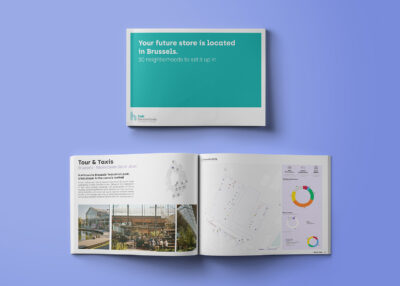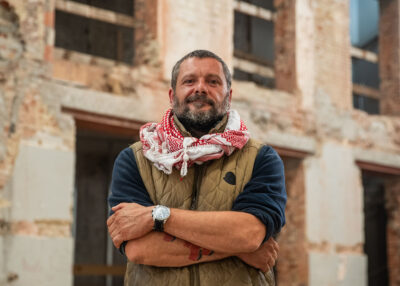
Women's entrepreneurship world tour: Montevideo (3/5)
What is it like to be a woman entrepreneur in Montevideo? On International Women’s Rights Day, we asked the same questions to five of our overseas economic and trade attachés. A little overview and inspiration in Lebanon, USA, Germany, Uruguay and Vietnam!
Female entrepreneurship is developing at varying rates around the world, though it still faces obstacles from the way patriarchal societies are run. But the tide is slowly turning. Throughout the world, public and private initiatives are offering support and financial aid to female entrepreneurial networks.
What does it mean to be a female entrepreneur in Montevideo?

According to a study conducted by 50 countries of the Global Entrepreneurship Monitor, Latin America is the region with the highest proportion of women brave enough to start a company.
“Of the entire economically active female population, 21% are entrepreneurs or self-employed. The gap between male and female entrepreneurial activity was 90% in the 2006-2018 period. This gap has narrowed since 2016, mainly due to a slow but persistent increase in the number of female entrepreneurs. In 2018, this ratio was 57%.
Moreover, the economic crisis resulting from the pandemic has lead to more women starting their own businesses to support their family financially.
89% of women who launch their own business start small or micro companies, and 4 out of 10 have gone through higher education. Over half of female entrepreneurs (54%) launch their company in the services sector, 38% turn to commerce and just 8% start businesses in the industrial sector.
The main motivation for starting a company is “personal independence or to fulfil potential”, but in Uruguay women also value the freedom to choose their working hours and location.
While 2020 saw Uruguay’s first female vice-president and mayor of Montevideo, there is still a long way to go. Gender inequality is part of Uruguay’s structural DNA, as it is in other countries from the Latin America and Caribbean regions.”
Obstacles: family structure & financial access
There are a number of barriers to entrepreneurship for Uruguayans:
- child care: family responsibilities and a resultant lack of time
- self-imposed limits: a significant number of Uruguayan women consider themselves less capable of starting a business than men
- unpaid work and a lack of support in the sharing of household chores and child care: Uruguayan women dedicate 36.6 hours per month to unpaid work, while men dedicate an average of 15.7
- financial access problems: a higher percentage of men use their own funds to start a business, whereas women tend to rely more on funding from a close friend or family member
- lack of a network for support or generating business.
Progress:
- The Ministry of Industry’s “8M” programme: granting up to 1.5 million Uruguayan pesos (roughly €28,300) to projects that promote development and productive and economic independence. Over 94 projects have obtained funding since 2009.
Want to learn more about the Uruguayan market? Get in touch with Jimena!

Jimena Villar
Uruguay - Paraguay - Argentina1248, Dr Luis A. de Herrera, Ofic. 714
C.P. 11300 Montevideo
Uruguay
+598 2 628 07 28
+598 2 628 92 88
+598 9 966 23 62
More news on our blog:

Brussels to California: keeping the American Dream alive
Posted on 27/10/2025
